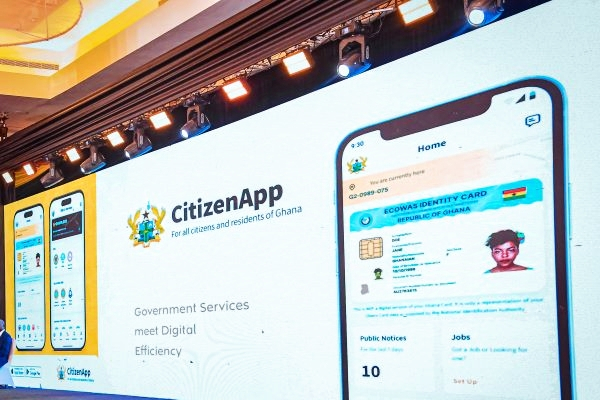As part of its digital transformation ambitions, Ghana is ramping up initiatives to digitize services and make them more accessible to the public. In September, the country launched a digital platform specifically designed for rent control.
On Monday, October 7, Ghana’s Vice President Mahamudu Bawumia launched a new unified mobile digital services platform. Baptized CitizenApp, the application allows Ghanaian citizens to access various government services, report issues, and receive real-time updates on public matters.
“What Ghana has done many advanced countries have not yet done it. So we are moving in a direction that has major opportunities…Once the system comes in doing business in Ghana will be very easy and smooth, paying taxes will be very easy, getting your passport, will be very easy, registering a business is very easy,” Bawumia stated.
The initiative is part of the Ghanaian government's broader strategy to accelerate the digitization of public services and improve their accessibility. In September, a digital platform dedicated to rent control was introduced. In July, the Ministry of Roads and Highways launched a mobile app enabling citizens to report road issues, enhancing safety and infrastructure development. Earlier, in February, another app was launched to formalize and harmonize the informal transport sector. Additionally, the digitization of the national population census process is currently in preparation.
These efforts have positioned Ghana as a leader in e-government implementation. According to the “E-Government Survey 2024: Accelerating Digital Transformation for Sustainable Development,” published in September 2024 by the United Nations Department of Economic and Social Affairs (DESA), Ghana ranks first in West Africa and seventh on the African continent.
However, the adoption of the new platform and the use of digital services will largely depend on Ghanaians' access to smartphones and the internet. While specific data for Ghana is not provided, the GSM Association (GSMA) reports that smartphone penetration in the Economic Community of West African States (ECOWAS) is at 51%. In Ghana, according to the International Telecommunication Union (ITU), 69.8% of the population owns a mobile phone, and 68.6% uses the internet.
Isaac K. Kassouwi



















